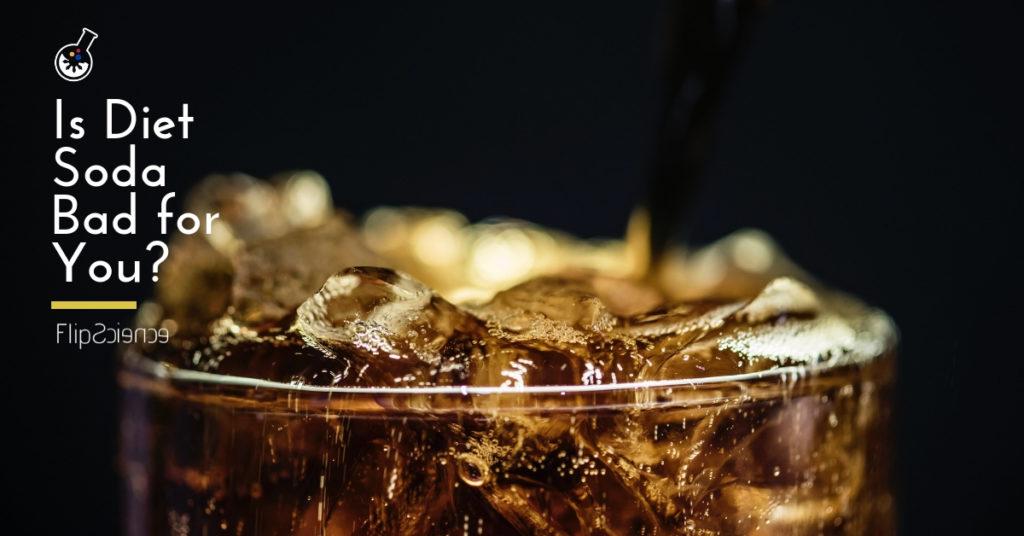As the saying goes, if it sounds too good to be true, it probably is. That said, diet soda — a mix of carbonated water, artificial sweeteners (such as aspertame, saccharin, and sucralose), and other non-sugar additives — probably ranks pretty high on the list of things that sound good.
After all, what’s not to like about diet soda? Zero calories, zero sugar, and absolutely nothing in its taste (or so the manufacturers claim) to suggest their absence. That’s precisely the reason why it’s called “diet soda” and not, say, “sugar-free soda” or “no-fun-allowed soda.” It supposedly has all of the awesomeness, but comes with none of the guilt.
Regular soda vs. diet soda: a carbonated dichotomy
The concept of the diet drink was introduced in 1952, initially meant for diabetics and not dieters. Eventually, soda manufacturers took advantage of this idea, producing sugar-free drinks targeted towards more health-conscious consumers.
In the Philippines, the Tax Reform for Acceleration and Inclusion (TRAIN) law imposed new tax rules on sugary beverages. This prompted the country’s major softdrink companies to drastically reduce their production of their classic, all-sugar flavors. This, in turn, led to an increased availability of previously less popular diet soda options in fast food establishments.
While many mourned the unexpected scarcity of their favorite classic Coke and Pepsi, it’s not surprising for others to see this as an acceptable compromise. Now, they can enjoy a refreshingly fizzy drink to go with their Chickenjoys and Big Macs, without having to worry about putting on a few extra pounds or increasing their risk of diabetes. Right?
Well, not exactly.
Diet soda deception
Admittedly, diet soda sounds like a godsend for soda-loving dieters and diabetics. It has virtually no significant nutritional value, but it also has little to no calories. And as modern science and common sense tell us, weight loss is mainly a matter of simple arithmetic. Expend more calories than you consume, and you should be shedding those unwanted inches off your waist in no time.
Unfortunately, it’s not as simple as that.
Studies have shown a correlation between drinking diet soda and increased food consumption. That’s because sweetness may increase or enhance your appetite, regardless of whether it is natural or artificial in origin. Aspertame in particular has been observed to magnify feelings of hunger, likely because it has no bitter aftertaste. Sure, you’re not taking in any additional calories whenever you take a sip of your diet soda, but you’ll feel the desire to eat more.
Thus, while diet soda doesn’t directly make you fatter, it’s one heck of an enabler. In a cruel twist of irony, your calorie-free drink becomes your gateway towards greater caloric consumption.
Healthier option? Slim chance
Furthermore, diet soda doesn’t just fool your taste buds; it fools the rest of your body as well.
The moment you taste something sweet, your brain tells your pancreas to churn out insulin. Insulin is what your body needs in order to use sugar as fuel or store it as fat. Imagine what would happen, then, if all that insulin comes rushing out, only to find that there’s no sugar to welcome it. Your body would eventually develop insulin resistance, which disrupts its ability to process glucose properly. This typically goes hand in hand with increased blood pressure, weight gain, and blood sugar spikes. Taken together, these symptoms point to metabolic syndrome — and thus, an increased risk of diabetes, stroke, and cardiovascular disease.
Now, conflicting evidence exists about whether or not diet soda truly affects insulin production. What we do know, however, is that artificial sweeteners tend to be considerably sweeter than sugar. There’s also a growing body of evidence linking artificial sweeteners to type-2 diabetes (with prolonged use), chronic kidney disease, and altered brain activity (specifically in the regions associated with eating and satisfaction).
It’s important to stress, however, that correlation does not imply causation. Just because an apparent connection exists between two things doesn’t mean one causes the other. For example, it’s possible that people who were already at risk of diabetes chose to drink more diet soda, which may explain why some studies found a link between the two.
Control your cravings
Nevertheless, regular consumption of diet soda is bound to mess up your metabolic processes. Drinking the occasional diet soda shouldn’t do much damage to your body. Make it a habit, though, and you’ll eventually feel stronger sugar cravings and hunger pangs.
Of course, one can argue that it’s all a matter of self control. Then again, if self-control weren’t an issue, you probably wouldn’t be seeking out alternatives to regular soda to satisfy your cravings in the first place.
The best thing to do? Drop the diet soda — go for a glass of water instead.
References
- http://www.americanheritage.com/content/sweet-nothing%E2%80%94-triumph-diet-soda-0
- https://business.mb.com.ph/2018/08/21/local-sugar-producers-hope-to-end-rift-with-coke-as-femsa-exits-ph/
- https://businessmirror.com.ph/classic-coke-output-cut-on-tight-sugar-supply/
- https://edition.cnn.com/2016/10/10/health/diet-soda-may-do-more-harm-than-good/index.html
- https://www.businessinsider.com/is-drinking-diet-soda-unhealthy-2018-8
- https://www.healthline.com/nutrition/diet-soda-good-or-bad
- https://www.livestrong.com/article/531926-does-a-diet-soda-affect-insulin/
- https://www.inc.com/minda-zetlin/diet-soda-weight-gain-metabolism-insulin-brain-fat-metabolic-syndrome.html
- https://www.nerdfitness.com/blog/is-diet-coke-bad-for-you-what-about-artificial-sweeteners
- https://www.washingtonpost.com/national/health-science/diet-drinks-may-seem-like-a-good-idea-but-their-effects-may-surprise-you/2018/06/01/85859710-5d06-11e8-a4a4-c070ef53f315_story.html
Author: Mikael Angelo Francisco
Bitten by the science writing bug, Mikael has years of writing and editorial experience under his belt. As the editor-in-chief of FlipScience, Mikael has sworn to help make science more fun and interesting for geeky readers and casual audiences alike.







